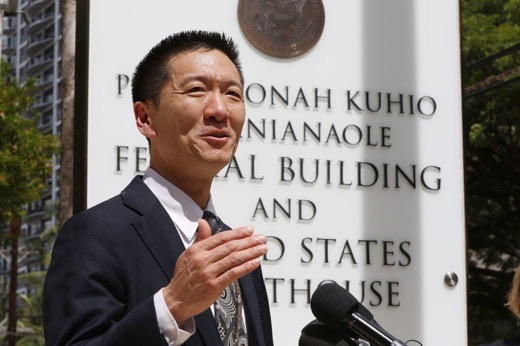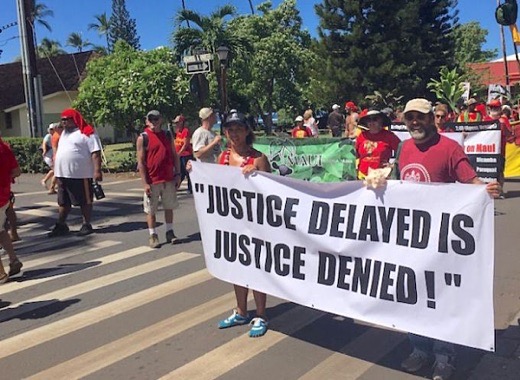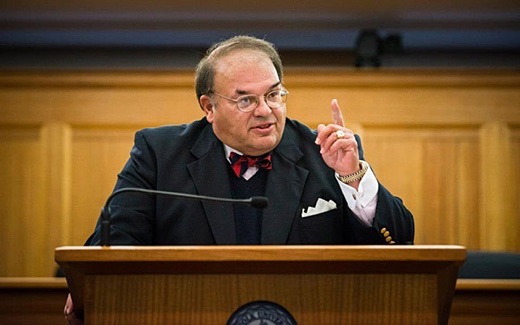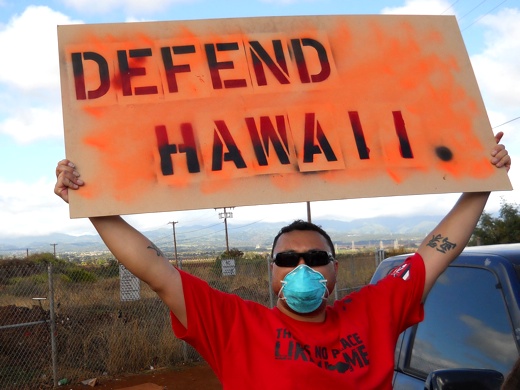SUBHEAD: Federal district judge Susan Illston finds National Security Letters unconstitutional, and bans them.
By Kim Zetter on 15 March 2013 for Wired News -
(
http://www.wired.com/threatlevel/2013/03/nsl-found-unconstitutional/?cid=co6425864)
 Image above: Photo of US Federal Judge Susan Illston. From original article.
Image above: Photo of US Federal Judge Susan Illston. From original article.
Ultra-secret national security letters that come with a gag order on the recipient are an unconstitutional impingement on free speech, a federal judge in California ruled in a decision released Friday.
U.S. District Judge Susan Illston ordered the government to stop issuing so-called NSLs across the board, in a stunning defeat for the Obama administration’s surveillance practices. She also ordered the government to cease enforcing the gag provision in any other cases. However, she stayed her order for 90 days to give the government a chance to appeal to the Ninth Circuit Court of Appeals.
“We are very pleased that the Court recognized the fatal constitutional shortcomings of the NSL statute,” said Matt Zimmerman, senior staff attorney for the Electronic Frontier Foundation, which filed a challenge to NSLs on behalf of an unknown telecom that received an NSL in 2011. “The government’s gags have truncated the public debate on these controversial surveillance tools. Our client looks forward to the day when it can publicly discuss its experience.”
The telecommunications company received the ultra-secret demand letter in 2011 from the FBI seeking information about a customer or customers. The company took the extraordinary and rare step of challenging the underlying authority of the National Security Letter, as well as the legitimacy of the gag order that came with it.
Both challenges are allowed under a federal law that governs NSLs, a power greatly expanded under the Patriot Act that allows the government to get detailed information on Americans’ finances and communications without oversight from a judge. The FBI has issued hundreds of thousands of NSLs over the years and has been reprimanded for abusing them — though almost none of the requests have been challenged by the recipients.
After the telecom challenged the NSL, the Justice Department
took its own extraordinary measure and sued the company, arguing in court documents that the company was violating the law by challenging its authority.
The move stunned EFF at the time.
 Image above: Photo of EFF team challenging NSLs. From (http://boingboing.net/2013/03/16/eff-explains-yesterdays-nati.html).
Image above: Photo of EFF team challenging NSLs. From (http://boingboing.net/2013/03/16/eff-explains-yesterdays-nati.html).
“It’s a huge deal to say you are in violation of federal law having to do with a national security investigation,” Zimmerman told Wired last year. “That is extraordinarily aggressive from my standpoint. They’re saying you are violating the law by challenging our authority here.”
The case is a significant challenge to the government and its efforts to obtain documents in a manner that the EFF says violates the First Amendment rights of free speech and association.
In her ruling, Judge Illston agreed with EFF, saying that the NSL nondisclosure provisions “significantly infringe on speech regarding controversial government powers.”
She noted that the telecom had been “adamant about its desire to speak publicly about the fact that it received the NSL at issue to further inform the ongoing public debate” on the government’s use of the letters.
She also said that the review process for challenging an order violated the separation of powers. Because the gag order provisions cannot be separated from the rest of the statute, Illston ruled that the entire statute was unconstitutional.
Illston found that although the government made a strong argument for prohibiting the recipients of NSLs from disclosing to the target of an investigation or the public the specific information being sought by an NSL, the government did not provide compelling argument that the mere fact of disclosing that an NSL was received harmed national security interests.
A blanket prohibition on disclosure, she found, was overly broad and “creates too large a danger that speech is being unnecessarily restricted.” She noted that 97 percent of the more than 200,000 NSLs that have been issued by the government were issued with nondisclosure orders.
She also noted that since the gag order on NSL’s is indefinite — unless a recipient files a petition with the court asking it to modify or set aside the nondisclosure order — it amount to a “permanent ban on speech absent the rare recipient who has the resources and motivation to hire counsel and affirmatively seek review by a district court.”
It’s only the second time that such a serious and fundamental challenge to NSLs has arisen. The first occurred around an NSL that was sent in 2005 to Library Connection, a consolidated back office system for several libraries in Connecticut. The gag order was challenged and found to be unconstitutional because it was a blanket order and was automatic. As a result of that case, the government revised the statute to allow recipients to challenge the gag order. Illston found that unconstitutional as well in her ruling this week because of restrictions around how they could challenge the NSL.
In 2004, another case also challenged a separate aspect of the NSL. This one involved a
small ISP owner named Nicholas Merrill, who challenged an NSL seeking info on an organization that was using his network. He asserted that customer records were constitutionally protected information.
But that issue never got a chance to play out in court before the government dropped its demand for documents.
With this new case, civil libertarians are getting a second opportunity to fight NSLs head-on in court.
NSLs are written demands from the FBI that compel internet service providers, credit companies, financial institutions and others to hand over confidential records about their customers, such as subscriber information, phone numbers and e-mail addresses, websites visited and more.
NSLs are a powerful tool because they do not require court approval, and they come with a built-in gag order, preventing recipients from disclosing to anyone that they have even received an NSL. An FBI agent looking into a possible anti-terrorism case can self-issue an NSL to a credit bureau, ISP or phone company with only the sign-off of the Special Agent in Charge of their office. The FBI has to merely assert that the information is “relevant” to an investigation into international terrorism or clandestine intelligence activities.
The lack of court oversight raises the possibility for extensive abuse of NSLs under the cover of secrecy, which the gag order only exacerbates. In 2007 a Justice Department Inspector General audit found that the FBI had indeed abused its authority and misused NSLs on many occasions. After 9/11, for example, the FBI paid multimillion-dollar contracts to AT&T and Verizon requiring the companies to
station employees inside the FBI and to give these employees access to the telecom databases so they could immediately service FBI requests for telephone records. The IG found that the employees let FBI agents illegally look at customer records without paperwork and even wrote NSLs for the FBI.
Before Merrill filed his challenge to NSLs in 2004, ISPs and other companies that wanted to challenge NSLs had to file suit in secret in court – a burden that many were unwilling or unable to assume. But after he challenged the one he received, a court found that the never-ending, hard-to-challenge gag orders were unconstitutional, leading Congress to amend the law to allow recipients to challenge NSLs more easily as well as gag orders.
Now companies can simply notify the FBI in writing that they oppose the gag order, leaving the burden on the FBI to prove in court that disclosure of an NSL would harm a national security case. The case also led to changes in Justice Department procedures. Since Feb. 2009, NSLs must include express notification to recipients that they have a right to challenge the built-in gag order that prevents them from disclosing to anyone that the government is seeking customer records.
Few recipients, however, have ever used this right to challenge the letters or gag orders.
The FBI has sent out nearly 300,000 NSLs since 2000, about 50,000 of which have been sent out since the new policy for challenging NSL gag orders went into effect. Last year alone, the FBI sent out 16,511 NSLs requesting information pertaining to 7,201 U.S. persons, a technical term that includes citizens and legal aliens.
But in
a 2010 letter (.pdf) from Attorney General Eric Holder to Senator Patrick Leahy (D-Vermont), Holder said that there had “been only four challenges,” and those involved challenges to the gag order, not to the fundamental legality of NSLs. At least one other challenge was
filed earlier this year in a secret case revealed by Wired. But the party in that case challenged only the gag order, not the underlying authority of the NSL.
When recipients have challenged NSLs, the proceedings have occurred mostly in secret, with court documents either sealed or redacted heavily to cover the name of the recipient and other identifying details about the case.
The latest case is remarkable then for a number of reasons, among them the fact that a telecom challenged the NSL in the first place, and that EFF got the government to agree to release some of the documents to the public, though the telecom was not identified in them. The Wall Street Journal, however, used details left in the court records, and narrowed the likely plaintiffs down to one, a small San-Francisco-based telecom named Credo. The company’s CEO, Michael Kieschnick, didn’t confirm or deny that his company is the unidentified recipient of the NSL, but did release a statement following Illston’s ruling.
“This ruling is the most significant court victory for our constitutional rights since the dark day when George W. Bush signed the Patriot Act,” Kieschnick said. “This decision is notable for its clarity and depth. From this day forward, the U.S. government’s unconstitutional practice of using National Security Letters to obtain private information without court oversight and its denial of the First Amendment rights of National Security Letter recipients have finally been stopped by our courts.”
The case began sometime in 2011, when Credo or another telecom received the NSL from the FBI.
EFF filed a
challenge on behalf of the telecom (.pdf) in May that year on First Amendment grounds, asserting first that the gag order amounted to unconstitutional prior restraint and, second, that the NSL statute itself “violates the anonymous speech and associational rights of Americans” by forcing companies to hand over data about their customers.
Instead of responding directly to that challenge and filing a motion to compel compliance in the way the Justice Department has responded to past challenges, government attorneys instead filed a lawsuit against the telecom, arguing that by refusing to comply with the NSL and hand over the information it was requesting, the telecom was violating the law, since it was “interfer[ing] with the United States’ vindication of its sovereign interests in law enforcement, counterintelligence, and protecting national security.”
They did this, even though courts have allowed recipients who challenge an NSL to withhold government-requested data until the court compels them to hand it over. The Justice Department argued in its lawsuit that recipients cannot use their legal right to challenge an individual NSL to contest the fundamental NSL law itself.
After heated negotiations with EFF, the Justice Department agreed to stay the civil suit and let the telecom’s challenge play out in court. The Justice Department subsequently filed a motion to compel in the challenge case, but has never dropped the civil suit.
The redacted documents don’t indicate the exact information the government was seeking from the telecom, and EFF won’t disclose the details. But by way of general explanation, Zimmerman said that the NSL statute allows the government to compel an ISP or web site to hand over information about someone who posted anonymously to a message board or to compel a phone company to hand over “calling circle” information, that is, information about who has communicated with someone by phone.
An FBI agent could give a telecom a name or a phone number, for example, and ask for the numbers and identities of anyone who has communicated with that person. “They’re asking for association information – who do you hang out with, who do you communicate with, [in order] to get information about previously unknown people.
“That’s the fatal flaw with this [law],” Zimmerman told Wired last year. “Once the FBI is able to do this snooping, to find out who Americans are communicating with and associating with, there’s no remedy that makes them whole after the fact. So there needs to be some process in place so the court has the ability ahead of time to step in [on behalf of Americans].”
.















